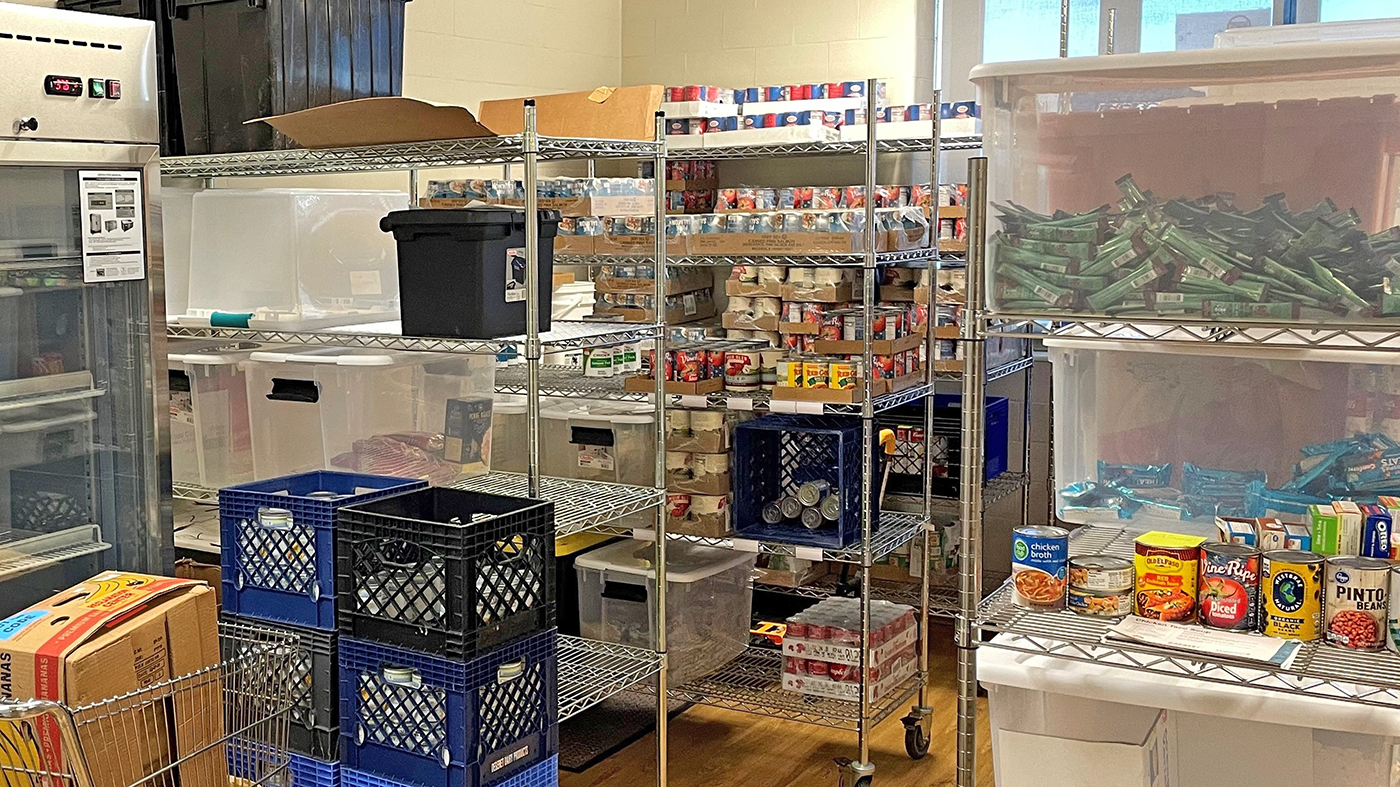Salt Lake City VA’s food pantry has helped hundreds of Veterans put food on their tables.
Food insecurity is a global issue significantly impacting millions, including Veterans in the Beehive state. The Veterans food pantry at George E. Wahlen VA in Salt Lake City is addressing the issue.
Motivated by personal experience
Veteran Army Captain Steven Prater oversees the Veterans pantry and, for him, it’s personal. “My family was poor. My mom really tried, but I know firsthand what it’s like not having enough to eat. When the Army recruiter promised me three hots and a cot, that’s all I needed to hear. I signed up,” he shared.
With the demand for services multiplying, the pantry has become a crucial support system for Veterans.
“We started with 200 Veterans in June, which soared to 453 by September. We’ve helped over 2,000 Veterans in 2023. Our data reveals that 20% are homeless, 40% are low-income single parents and 15% rely on food stamps,” Prater continued.
Unfortunately, many Veterans and active-duty service members struggle to feed their families. A study by Feeding America found one-in-nine working-age Veterans lived in households with food insecurity and one-in-four active-duty service members experienced food insecurity.
Female Veterans, Veterans with disabilities and unemployed Veterans are more likely to face hunger due to low wages, lack of affordable housing, mental health issues, service-related disabilities and systemic discrimination.
The Supplemental Nutrition Assistance Program is a federal program that can help Veterans facing hunger.
“Many will avoid seeking help due to unclear eligibility or shame, but they deserve understanding and support. Military families may also face hunger due to lower salaries, high unemployment rates for military spouses, high living costs near military bases and ineligibility for food assistance programs,” Prater said.
Real-life impact
To receive help from the Veterans Food Pantry, a Veteran must be eligible for VA health care, unlike community food pantries that may have income limits.
“If a Veteran isn’t enrolled in VA health care and seeks help through the pantry, we’re going to feed them and help to get them enrolled. We’ll work with the Veteran and their health care team to screen for factors known as social determinants of health. Food security significantly impacts a Veteran’s health.”
Prater aims to expand the Veterans food pantry by partnering with a mobile food pantry to reach community-based outpatient clinics and Veterans in their homes.
He is also involved in a pilot study for a healthy produce prescription program collaborating with the Rockefeller Foundation, About Fresh, Houston VA, and Salt Lake City VA.
A mission beyond food
As a licensed clinical social worker, Prater is excited about expanding the pantry.
“The pantry is more than just handing out food. It’s about nourishing souls and improving Veterans’ lives. For me, it’s not just a job. It’s my mission,” he said.
Please find a Veterans Food Pantry near you and inform your health care team if you are experiencing food insecurity. VA can help.
Topics in this story
Link Disclaimer
This page includes links to other websites outside our control and jurisdiction. VA is not responsible for the privacy practices or the content of non-VA Web sites. We encourage you to review the privacy policy or terms and conditions of those sites to fully understand what information is collected and how it is used.
More Stories
Bob Jesse Award celebrates the achievements of a VA employee and a team or department that exemplifies innovative practices within VA.
The Medical Foster Home program offers Veterans an alternative to nursing homes.
Watch the Under Secretary for Health and a panel of experts discuss VA Health Connect tele-emergency care.







Great story on the true numbers of Veterans who benefit from community resources such as food pantries. It’s also very unfortunate that so many of our Veterans and their families face issues such as this.